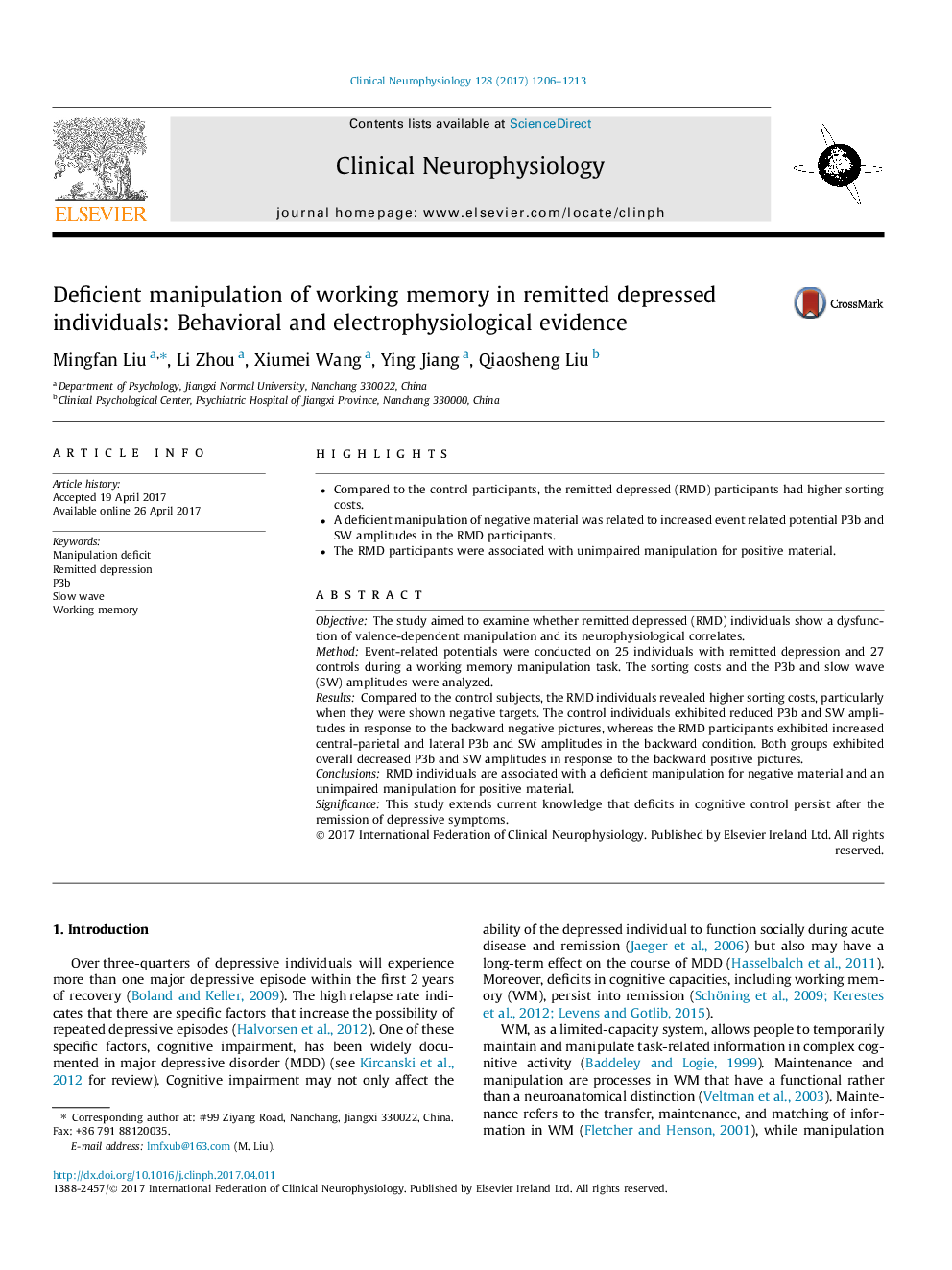| Article ID | Journal | Published Year | Pages | File Type |
|---|---|---|---|---|
| 5627831 | Clinical Neurophysiology | 2017 | 8 Pages |
â¢Compared to the control participants, the remitted depressed (RMD) participants had higher sorting costs.â¢A deficient manipulation of negative material was related to increased event related potential P3b and SW amplitudes in the RMD participants.â¢The RMD participants were associated with unimpaired manipulation for positive material.
ObjectiveThe study aimed to examine whether remitted depressed (RMD) individuals show a dysfunction of valence-dependent manipulation and its neurophysiological correlates.MethodEvent-related potentials were conducted on 25 individuals with remitted depression and 27 controls during a working memory manipulation task. The sorting costs and the P3b and slow wave (SW) amplitudes were analyzed.ResultsCompared to the control subjects, the RMD individuals revealed higher sorting costs, particularly when they were shown negative targets. The control individuals exhibited reduced P3b and SW amplitudes in response to the backward negative pictures, whereas the RMD participants exhibited increased central-parietal and lateral P3b and SW amplitudes in the backward condition. Both groups exhibited overall decreased P3b and SW amplitudes in response to the backward positive pictures.ConclusionsRMD individuals are associated with a deficient manipulation for negative material and an unimpaired manipulation for positive material.SignificanceThis study extends current knowledge that deficits in cognitive control persist after the remission of depressive symptoms.
